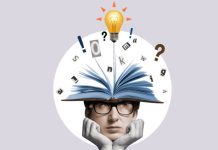By Dr Audrey Tang
A team of researchers at UCL1 found that “Arts group participation…was associated with multiple positive aspects of wellbeing including life satisfaction, positive affect, purpose…and mastery.” This echoes Martin Seligman’s2 positive psychology view that happiness is built on three pillars:
- Healthy relationships
- Flow/Mastery
- Purpose
If we feel good we are likely to engage with life better, and thus it is arguable that if we allow ourselves to build and flex our creative muscle as well as maintain and express our authenticity, this in turn can result in better work performance.
Further, according to Pearson3, the top skills sought by employers are soft rather than technical:
“Looking ahead to 2026, Pearson’s AI-based modelling suggests that the top five power skills that will be most in demand to meet economic needs are also human skills:
- Collaboration
- Customer Focus
- Personal Learning & Mastery
- Achievement Focus
- Cultural and Social Intelligence” (Pearson, 2022)
As such, what may have once been dismissed as “not appropriate for work” – may well be essential to the modern day workplace:
So how can creativity and self expression support you professionally?
A. Collaboration: Reaching out and improved critical thinking
As creative projects often involve others ie. because of shared materials – even if a person was working alone, this brings with it an ease when it comes to asking others for help. Within the business world Timms (2018)4 identified that organisations that embed a process of working together so that discussion and checking was commonplace also developed a culture of collaboration rather than fears of competition and judgment. Further in such an environment of open communication, critical thinking is boosted and encouraged.
B. Customer Focus: While remaining authentic
There is an expectation of behaviour that comes with some professions eg. a nurse is to be compassionate; a checkout assistant friendly; a teacher kind…and so on. “Emotional Labour” was defined by Arlie Russell Hochschild in 1983 as a socially constructed behaviour where a professional manages his or her “…feeling to create a publicly observable facial and bodily display.” (Hochschild, 20035). This can sometimes cause problems when one is supressing too much of their authentic feelings for too long a time – as we learn from creativity – even actors need to break character sometime. While there is a time and place for professionalism, if you feel you are supressing too much of yourself, have the self-awareness to seek a role or environment that is more suited to you.
There are exceptions however. In the case of someone who would otherwise be discriminated against if they didn’t mask their emotions then it is not you that necessarily has to adapt, the organisation has a responsibility too. For neurodivergent people who need to conform to a certain ‘type’ which is nothing like their authentic selves, or someone who has to hide their sexuality or any characteristic to keep a job – it is both unfair and unjust, and this is why there are laws against discrimination.
C. Personal Learning & Mastery: Problem Solving
The UCL research team also found that problem solving was enhanced by creative pursuits because they believed that the use of imagination embedded within arts projects encouraged a habit of thinking broadly when it came to dealing with problems, and finding that spark that no-one else had thought of. This habitual engagement with “thinking outside the box” is something that transfers to all skills boosting problem solving skills and in turn one’s own sense of mastery through learning and success.
D. Achievement Focus: remaining flexible
There is a joke in the theatre world that “Theatre people can make something out of nothing” (Theatre Camp, 2023), and there is some truth to that. When you create, you can turn anything into something different, you really can produce something out of thin air, and all this simply means if you’re faced with a problem…you can adapt. The more you engage with simply scribbling, doodling, humming, moving…or other creative pursuits which take your fancy, the more likely it is you will recognise in yourself the ability to think – creatively and ‘put on the show here’ should you need to without it causing you great stress or strain.
E. Social Intelligence: Pause!
Engaging within artistic pursuits can release dopamine and endorphins which make us feel good – especially on seeing something we have made ourselves take shape; and the process can also reduce the stress hormone cortisol. This in turn can result in better wellbeing overall, for example better sleep which leads to better interactions and better performance.
F. Cultural Intelligence: Sometimes you need to speak up!
If something is not right, if it is toxic or harmful, there is nothing to be gained by staying quiet. If you continue to mask – healthy change is never achieved. As such, while it may be a case of speaking up while managing emotions this does not mean denying that you feel them.



 Dr Audrey Tang
Dr Audrey Tang
































